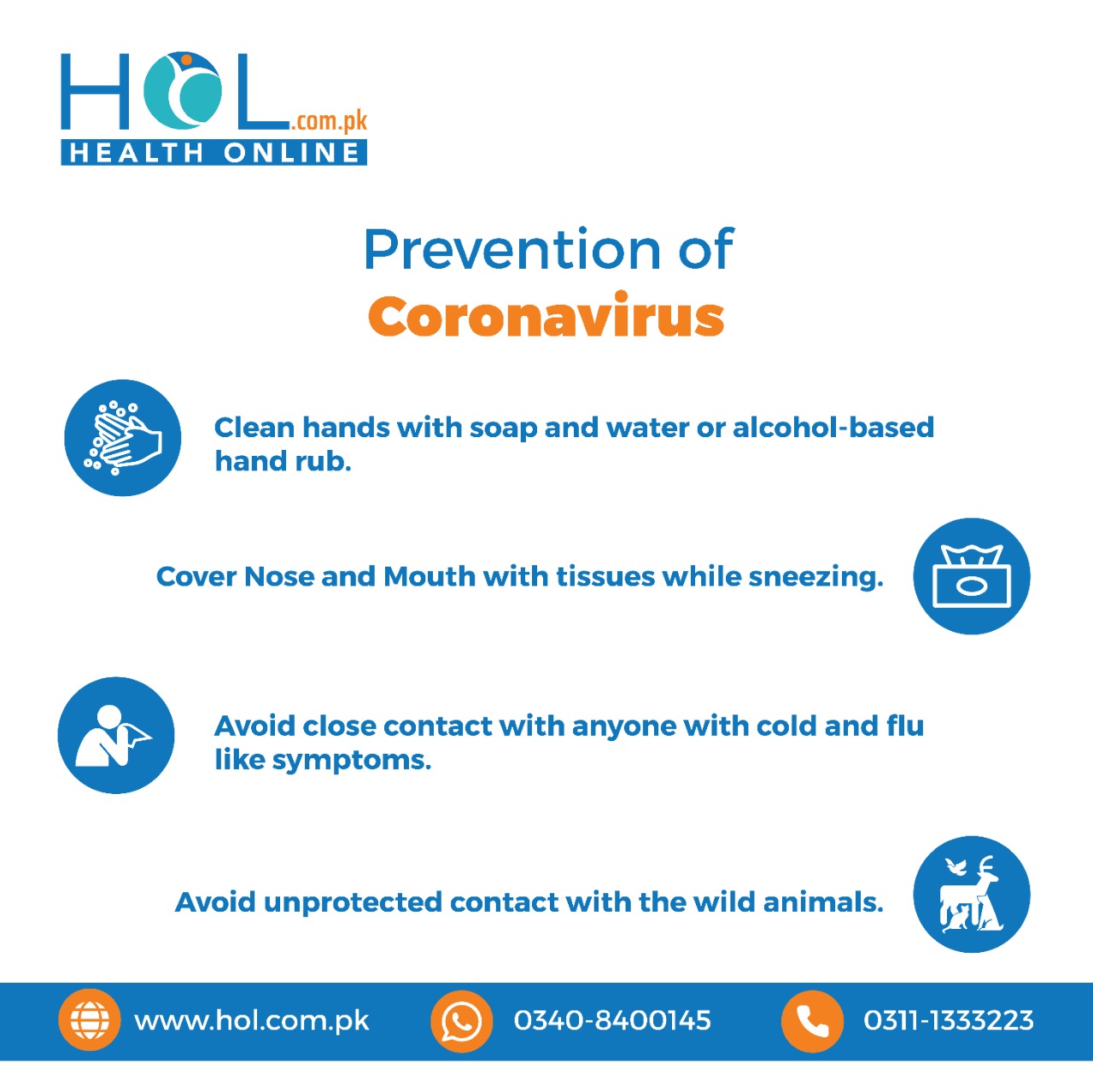Corona viruses are a broad family of Viruses causing variety of respiratory diseases; starting from Common-cold to Middle East Respiratory Syndrome (MERS-CoV) and Severe Acute Respiratory Syndrome (SARS-CoV).
Novel Corona Virus is a new strain causing outbreak of respiratory disease identified in the cluster of pneumonia patients in Wuhan City of China first.
In addition, cases are also confirmed in several cities in China, and other countries including Thailand, Japan, South Korea and the United States. More cases may appear in more countries including Pakistan in the future.
Signs and Symptoms:
Most of the cases have shown respiratory symptoms, fever, cough and shortness of breath. In more severe cases, infection can cause pneumonia, severe acute respiratory syndrome, kidney failure and even death.
Mode of Transmission:
These viruses are common in many different species of animals, including camels, cattle, cats, and bats. Rarely, animal coronaviruses can infect people and then spread person-to-person such as with MERS and SARS.
Suspected nCoV-2019 is defined as:
A person with acute respiratory illness (fever with cough and/or shortness of breath) and any of the following:
- A history of travel to China in the 14 days prior to symptoms onset.
- A close physical contact in the past 14 days with a confirmed case of nCoV-2019 infection
Confirmed 2019-nCoV is defined as:
A Confirmed case is defined as a suspected case with
- Laboratory confirmation of nCoV-2019 infection. (the laboratory testing for 2019-nCoV is performed at the national public health lab ONLY)
Infection control in Healthcare Facilities:
Risk of nCoV-2019 is less severe at this time. Everyone can do his part to avoid its spread in community.
- Everyone with flu or respiratory disease should get themselves Vaccined (use INFLVAC). And take everyday action to avoid germs spread and taking flu by using N-95 Face Mask
- The mode of transmission of 2019-nCoV remains unknown. But the recommendation is to ensure that:
Infection Control Team or its representative in every healthcare facility following contact and droplet precautions, and perform the necessary awareness.
- Perform hand hygiene.
- Activate triage at the entry point of the healthcare facility, for early identification of all patients with acute respiratory illness.
- Practice additional precautions for aerosol generating procedures; wear a fit-tested N95 mask, eye protection (i.e. goggles or a face shield), gloves and impermeable apron.
- Admit all suspected cases to isolation room, and practice standard, contact and airborne infection control precautions for patients or dead bodies with known or suspected


